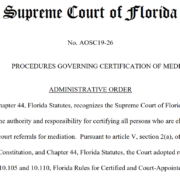May 2019 New Administrative Order! Fresh, New & Responsive
[fusion_builder_container hundred_percent=”no” equal_height_columns=”no” menu_anchor=”” hide_on_mobile=”small-visibility,medium-visibility,large-visibility” class=”” id=”” background_color=”” background_image=”” background_position=”center center” background_repeat=”no-repeat” fade=”no” background_parallax=”none” parallax_speed=”0.3″ video_mp4=”” video_webm=”” video_ogv=”” video_url=”” video_aspect_ratio=”16:9″ video_loop=”yes” video_mute=”yes” overlay_color=”” video_preview_image=”” border_size=”” border_color=”” border_style=”solid” padding_top=”” padding_bottom=”” padding_left=”” padding_right=””][fusion_builder_row][fusion_builder_column type=”1_1″ layout=”1_1″ background_position=”left top” background_color=”” border_size=”” border_color=”” border_style=”solid” border_position=”all” spacing=”yes” background_image=”” background_repeat=”no-repeat” padding_top=”” padding_right=”” padding_bottom=”” padding_left=”” margin_top=”0px” margin_bottom=”0px” class=”” id=”” animation_type=”” animation_speed=”0.3″ animation_direction=”left” hide_on_mobile=”small-visibility,medium-visibility,large-visibility” center_content=”no” last=”no” min_height=”” hover_type=”none” link=””][fusion_text columns=”” column_min_width=”” column_spacing=”” rule_style=”default” rule_size=”” rule_color=”” hide_on_mobile=”small-visibility,medium-visibility,large-visibility” class=”” id=””]
From Anticipated Changes to Innovative Responses, This New Administrative Order Responds to What Many Have Been Waiting For….
A new administrative order governing the certification and renewal of mediators has been issued and is effective immediately. Some changes you will note:
- Allowing mentorship activities (up to four hours) and lecturing to count as a live method of continuing mediator education (CME);
- Elimination of the four-hour appellate specific CME requirement for certified appellate mediators;
- Including attendance at court alternative dispute resolution (ADR) committee and board meetings for time spent on mediation topics as a live method of CME;
- Inclusion of pre-suit homeowner association (HOA) disputes, within the jurisdiction of the circuit court, mediated by a certified circuit mediator, to qualify for circuit mentorship;
- Inclusion of the process for the Florida Department of Law Enforcement (FDLE) background screening for mediators seeking certification and certified mediators adding an area of certification;
- Adoption of the expanded interpersonal violence (IPV) definition for CME activities; and
- Consolidation of administrative orders AOSC11-1 and AOSC12-48.
There were no increases to the fees for certification or renewal.
AOSC19-26 Governing Certification of Mediators
[/fusion_text][/fusion_builder_column][/fusion_builder_row][/fusion_builder_container]



